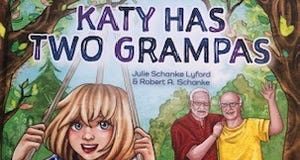Some of country music’s greatest legends – Tim McGraw, Willie Nelson, and Garth Brooks, among others – have gay women to thank for their success. This unsung force of creativity gets a voice in a new documentary, “Invisible: Gay Women in Southern Music.” The film reveals personal stories of gay country singer-songwriters who cloaked their sexuality in order to remain in an industry not known for its inclusiveness. “Invisible” screens Sept. 25 as part of the festival Out on Film. The documentary’s director T.J. Parsell, along with festival director Jim Farmer joined “City Lights” host Lois Reitzes to talk about the new film and the extraordinary stories it brings to light.
Interview highlights:
The making of ‘Invisible’:
“A friend of mine came to me when I first moved to Nashville… This was someone who had nothing to do with film, so when I met with him, I have to say, my expectations were kind of low. And I said, ‘Okay, what do you got?’ And he said, ‘Gay women in country music. There is this entire network of gay women songwriters who have written for everyone, and many of them are my friends,’” said Parsell.
“From our very first interview with Mary Gauthier… I was just blown away by how open and vulnerable she was willing to be,” said Parsell. “It was pretty clear that this was a woman’s story, and even though Bill and I are both gay men, we realized that we’re still men. We’re gay, and we have that empathy, so it was important to us to hire some key department heads that were women. So my director of photography is a gay woman, and my editor is a woman, and I think that was very helpful for us because we needed a woman’s insight, I think, into some of these issues.”
“Kye Fleming is a songwriter who’s in the National Songwriting Hall of Fame. She’s written so many number one hits, she doesn’t know how many she’s written… Kye has never been out. Kye, when she came to Nashville, she had almost immediate success. Within six months, she had a couple of number one hits on Barbara Mandrell’s album,” said Parsell. “So for Kye Fleming, the stakes were immediately high for her, and she knew that she could not be out…. Our film is the first time she’s ever put herself out there, and that was not an easy decision for her.”
On director T.J. Parsell’s reckoning with gatekeeping in country music:
“Personally, I had spent years in the software business in the ‘80s and ‘90s. It was a very competitive industry, and I’m a gay man, but I knew I couldn’t be out. Part of my job was to build relationships with folks, and talking about my boyfriend was not going to build a lot of relationships,” said Parsell. “So for me, it was a business decision to put my sexuality on the shelf, and I know what that cost me. So I think, coming from that place, I was instantly curious and wanted to have some of these conversations with these women.”
“Country music is such a misogynistic industry,” said Parsell. “Not long into the project, I began to scratch my head and wonder, how much of what these women were dealing with was because they were gay, and how much was because they were women.”
“I think country radio has way too much power. In country music, to have a career, you need radio airplay. It’s controlled by two or three corporations. A lot of the program managers and a lot of the on-air personalities, they’re men,” said Parsell. “When we started to hear about some of the sexual harassment that goes on with the women on the radio circuit, it’s appalling. I wonder how many great talents we may have lost because they just didn’t have the stomach for that.”
On making honest and universally relatable music, despite hiding one’s truth:
“I think Mary Gauthier puts it best in the film. She says, ‘The deeply personal is universal. A song has to be vulnerable if it’s going to be any good.’ I think that was one of the things I was struck with in the course of making the film and observing these women and talking to them about their process; the level and the degree to which they’re willing to just rip open their chests and reveal who they are,” Parsell said. “That’s great songwriting. That’s the stuff that moves us.”
“What I found really interesting in the very beginning was the fact that of these performing artists, the large catalog of songs that were written by women, and written by gay women. I was almost a little giddy thinking, I’d love to be a fly on the wall when some of these good ol’ boys find out how much of their beloved music was written by lesbians,” said Parsell.
Out On Film, Atlanta’s LGBTQ+ film festival, takes place Sept. 23 through Oct. 3, 2021. “Invisible: Gay Women in Southern Music” screens Sept. 25 at 6:30 p.m. at Landmark Midtown Art Cinema. More information and tickets are available at www.outonfilm.org.








